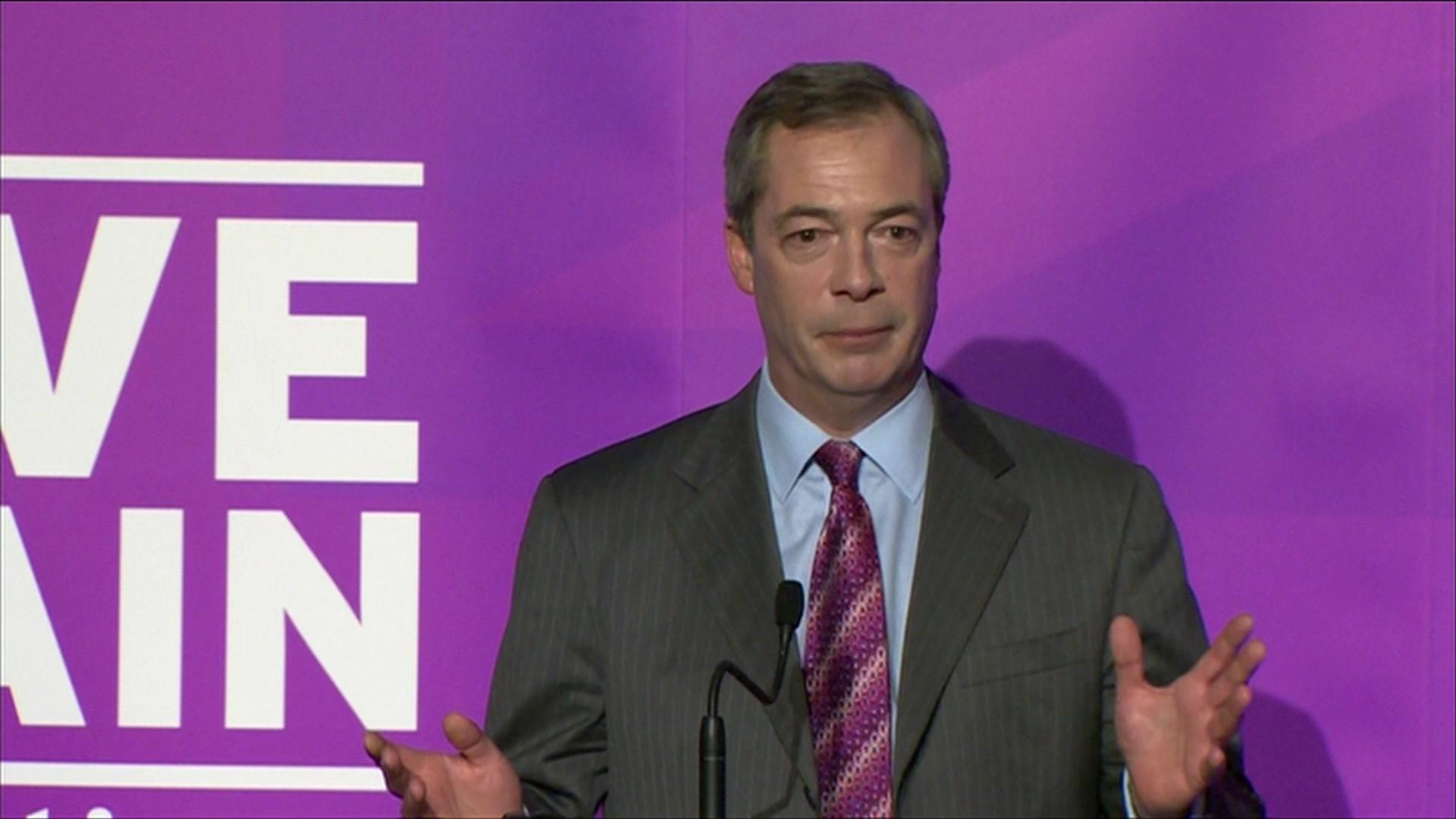Leader profile: 24 hours with Nigel Farage
- Published
Nigel Farage on the effect of his fame on his children: "It's difficult when you are younger because you are going to get teased mercilessly"
Nigel Farage has a secret, a nocturnal passion.
Away from the pubs and the cameras, while the nation is sleeping, the leader of UKIP likes to go fishing. On the Kent coast. At night. By himself.
"One thing I can fit in to my working life is shore fishing because I can do it at night," he told me.
"I might have had a busy day in London, but I might nip down to the coast and have three or four hours through to the early hours of the morning fishing."
It is his way of staying sane amid the relentless pressures of modern politics. Sleep, he said, was a waste of time.
But he told me that his family had paid a price for his absence and his fame, in particular his four children.
Great passion
He said: "We have this very unusual surname, there aren't many of us, and that is difficult, it is difficult when you are younger because you are going to get teased mercilessly wherever you go, but it actually difficult when you are grown up too, because people are judging you unfairly by your father, and that's tough, that is tough."
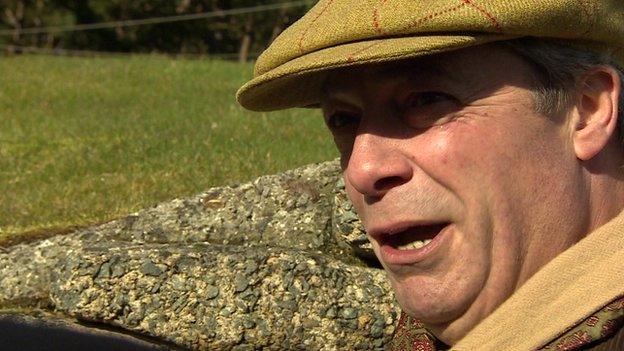
The UKIP leader ponders the toll politics has taken on his family life
He told me this after we had crossed the channel on a ferry, on what could be one of his last trips to the European Parliament as an MEP for the first in a series of films BBC News is doing on the party leaders ahead of the election.
We drove to France with Mr Farage to indulge his other great passion - the battlefields of the Great War.
He has been coming here for more than 30 years.
His grandfather, Private Harry Farage, was wounded near Vimy Ridge at Arras. He says that when he first took visitors around the Western Front his colleagues in the City of London thought he was mad. Now he says everyone is doing it. It is a handy metaphor, perhaps, for his own political journey.
For 16 long years, the UKIP leader has been coming to Brussels to wage war on the European Union.
At times he has cut a lonely figure, one of a handful of voices in the Strasbourg parliament challenging the bureaucratic might of the EU. These days populist anti-establishment parties have sprung up across Europe and UKIP itself has been transformed into a genuinely national political force.
National force
But if Mr Farage succeeds in his attempt to swap Brussels for Westminster in May, he will be stepping off the European gravy train and beginning a new phase of his life in the House of Commons.
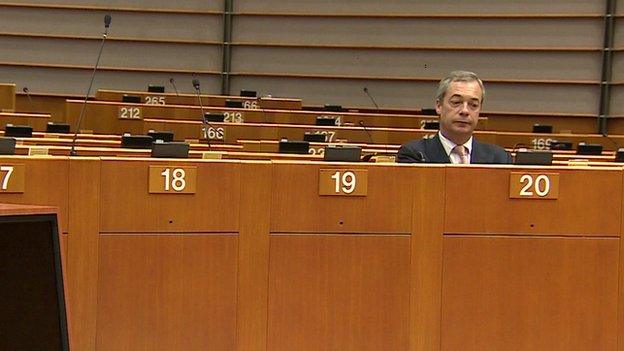
Is Mr Farage about to swap his regular seat in the Brussels chamber for Westminster?
He insists that he won't miss the European Parliament.
But he acknowledges that it has provided him with a platform that has allowed him not only to rescue UKIP but transform it into a national political force.
A few weeks ago, he said, a speech that he gave in Strasbourg was watched by more than two million people on YouTube. The money and resources that UKIP has generated in Europe has kept the party going for years.
Having spent 24 hours with Team Farage, I also draw two further insights.
One is that his media team are much much more reluctant to let him be filmed in pubs, pint and fag in hand.
It is almost as if they want to present a more professional, less jokey narrative - and let the drinking and smoking take place away from the cameras.
The other thing I have picked up is just how angry Mr Farage gets when presented with claims that some UKIP members are racist.
Smear tactics
There was a time when these incidents and allegations were laughed off. They never appeared to dent UKIP's popularity because many voters saw the allegations as Westminster smear tactics against an outside insurgent.
But now some polls are suggesting the figures are heading in the other direction and more people consider UKIP to be racist.
Hence the concern among Team Farage and the desperate attempt to close these stories down.
Mr Farage tells me that the press hype the stories up and do not apply the same standards to extremist views held by members of other parties.
Sometimes we forget just how far UKIP has come in a relatively short space of time.
The rows over some members' extreme views and the recent confusion over health and immigration policy are typical growing pains in a party that has left the margins and is entering the mainstream.
- Published6 March 2015
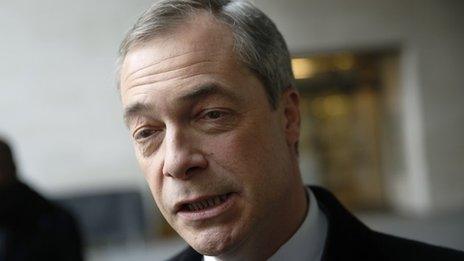
- Published4 March 2015
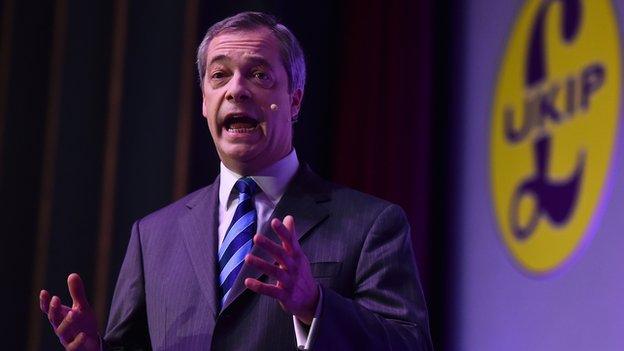
- Published12 February 2015
